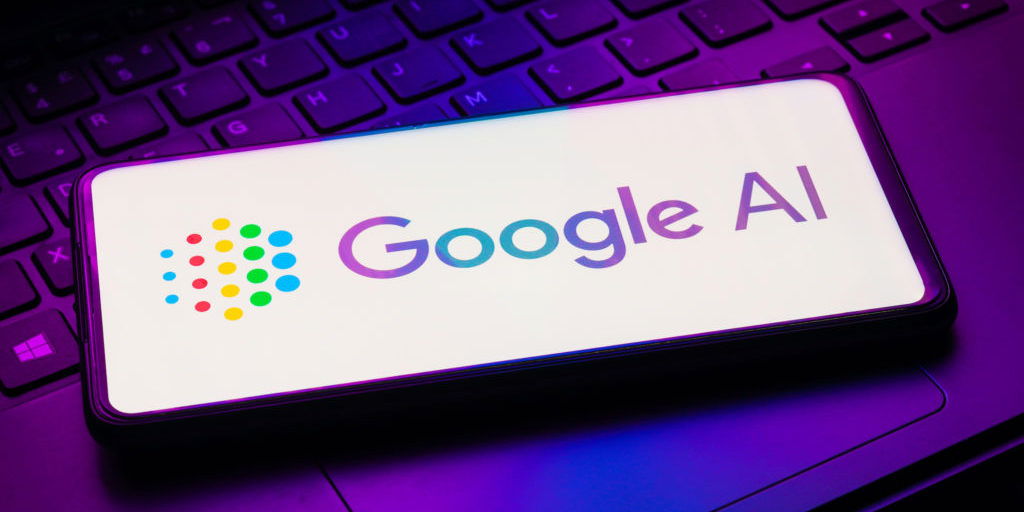Google has Changed their Mind About AI Generated Content
BY Bigger Law Firm Magazine

- After years of requiring human-generated content, Google now allows the use of AI tools for content developers.
- Google also warns that the change in policy is not a license to create useless content.
- Law firms thinking about flooding the web with bot-generated-content will likely face the consequences of SpamBrain.
LISTEN
In the quest to provide more accurate and personalized search results, Google is constantly refining its algorithm to integrate AI and machine learning techniques. Let's delve deeper into how Google Search interfaces with AI content and the profound implications this synergy brings about.
The Evolution of Google Search
Bigger Law Firm Magazine originally reported on Google's AI models back in 2015 with the issue on Google Rankbrain. While AI has been part of the delivery of search results, Google has prohibited the use of AI-generated content from web publishers.
AI and Machine Learning in Google Search
The integration of AI and machine learning in Google Search has transformed the way search results are ranked and presented. Primarily, it has allowed for greater personalization of search results and enhanced accuracy in query comprehension.
For instance, Google's BERT (Bidirectional Encoder Representations from Transformers) system, an open-source machine learning framework for natural language processing (NLP), helps the search engine understand the context and intent of search queries more accurately thus relying less on literal keywords.
The Advent of AI-Driven Content
AI-driven content refers to the content generated or optimized using AI and machine learning algorithms. This novel approach to content creation can result in high-quality, relevant, and personalized content. It can also result in rehashed garbage that sounds like it's written by an 8th grader begrudgingly struggling to meet the teacher's word count requirements.
The Impact of AI-Driven Content on SEO
The emergence of AI-driven content has necessitated a rethinking of traditional law firm SEO strategies.
For instance, keyword stuffing and even balanced keyword density is less effective in the age of AI-driven Google Search. Rather, a focus on semantic search, search intent, and context is proving more beneficial. AI can help writers improve context and modify the written word to be better interpreted for search intent than the human working alone.
Embracing AI-Driven Content
With the release of Google BARD, their ChatGPT-like generative AI chatbot, Google has had a change of heart. As it brags about BARD's ability to generate content, he cannot also say "all AI content is bad." So they've changed the rules.
On Google's Search Central blog, they now say, "Focusing on rewarding quality content has been core to Google since we began. It continues today, including through our ranking systems designed to surface reliable information and our helpful content system. The helpful content system was introduced last year to better ensure those searching get content created primarily for people, rather than for search ranking purposes." "
When it comes to automatically generated content, our guidance has been consistent for years. Using automation—including AI—to generate content with the primary purpose of manipulating ranking in search results is a violation of our spam policies.
Google has many years of experience dealing with automation being used in an attempt to game search results. Our spam-fighting efforts—including our SpamBrain system—will continue, however spam is produced.
This said, it's important to recognize that not all use of automation, including AI generation, is spam. Automation has long been used to generate helpful content, such as sports scores, weather forecasts, and transcripts. AI has the ability to power new levels of expression and creativity, and to serve as a critical tool to help people create great content for the web.
This is in line with how we've always thought about empowering people with new technologies. We'll continue taking this responsible approach while also maintaining a high bar for information quality and the overall helpfulness of content on Search."
What exactly is Google saying about AI generated content?
Their change in terms essentially comes to, "Yes, you can use AI tools to help create quality content but it had better be good."
If you think AI is going to allow you to flood your website with tons of pages that help you dominate search, it won't. And Google's SpamBrain system is standing by, ready to detect and discard useless content.
LATEST STORIES



